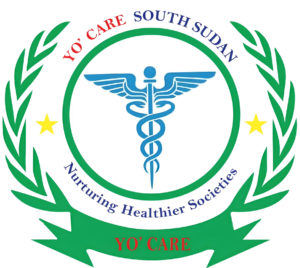
Date: January 10, 2022
PUB2022/01/YoCare
Authors: Dr. Yohanis Riek, Tut Ampher Tuach, Marcilia Paulo
Abstract:
Background: All over the world, sex workers experience extraordinarily high rates of violence. Even where there are high rates of violence against women, sex workers experience a higher burden. There is no national baseline statistics across the Country to understand the prevalence and full magnitude of the problem posed by violence against women and girls in South Sudan. However, one recent study indicates that some 65 per cent of women and girls have experienced physical and/or sexual violence in their lifetime, and some 51 per cent have suffered intimate partner violence (IPV). Some 33 per cent of women have experienced sexual violence from a non-partner, primarily during attacks or raids. The majority of girls and women experience sexual violence for the first time under the age of 18 [Georgetown University, 2017].
Gender-based violence (GBV) threatens the overall well-being of South Sudan’s population, particularly for key populations (FSWs) who remain vulnerable to all forms of GBV/VAWG due to the nature of their work, conflicts, and the operating environment.
Methods:
GBV data were recorded among female sex workers aged 10—50+ in four AHEC-supported sites in South Sudan: Juba, Bor, Rumbek, and Wau between January and December 2021. The data were analyzed using SPSS version 25.
Findings:
A total of 1,855 female sex workers between the ages of 10–50+ were reached in 2021. Of this, 64% (n=1,182 ) reported incidents of gender-based violence between January to December 2021 among, with emotional violence accounting for 69% (n=818), followed by physical assault at 53% (n=625), economic abuse at 23% (n=274), and sexual violence at 5% (n=61).
Conclusion:
Based on documented incidents, the prevalence of GBV/VAWG was estimated to be around 64% of all screened Female Sex Workers though there are concerns numbers may be much higher if a nation-wide prevalence studies are conducted. This study was limited to Juba (Munuki Block), Bor, Rumbek, and Wau where Yo’ Care is currently implementing the USAID/AHEC Activity.
Keywords: Gender-based violence/violence against women, key populations, screening and prevention, family planning services, South Sudan.
